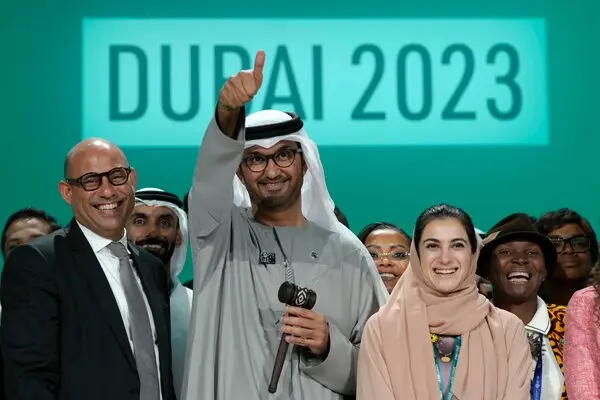The UN’s climate chief has said that governments must not try to pick loopholes in the global agreement to “transition away” from fossil fuels reached last December as he called for “torrents” of cash for poorer countries to tackle the crisis.
According to reports, some countries have sought to play down the significance of the deal reached at the Cop28 UN climate summit in Dubai, the first time that governments have made such a pledge on oil and gas.
Saudi Arabia’s energy minister, Abdulaziz bin Salman, told a conference last month that the “transition away” from fossil fuels was merely one choice on an “a la carte menu” of actions from the summit, an interpretation strongly repudiated by others.
Simon Stiell, the executive secretary of the UN framework convention on climate change, refused to single out any countries, but warned: “Hiding behind loopholes in decision texts, or dodging the hard work ahead through selective interpretation, would be entirely self-defeating for any government, as climate impacts hammer every country’s economy and population.”
Read also: Party sources say labour to ditch £28bn annual green investment pledge
The deal struck in Dubai sent “a very strong signal about the inevitability of global decarbonisation”, he told an audience of students and diplomats at the ADA University in Baku, the capital of Azerbaijan and the venue for this year’s Cop, on Friday.
Last year’s Cop focused on the need for countries to address fossil fuels as the key sources of greenhouse gas emissions. This year, the question of finance will dominate the agenda, which promises to be equally fraught.
Current levels of finance to help poor countries cut their emissions and cope with the impacts of extreme weather are widely recognised as far too low. However, there is little agreement on how they can be increased.
Rich countries are under pressure to pledge more assistance to the poor, but the sums that will eventually be needed dwarf anything likely to come from public budgets. Instead, countries are looking to innovative forms of finance, from the public and private sector, that can reach trillions in investment each year.
Story was adapted from the Guardian.
